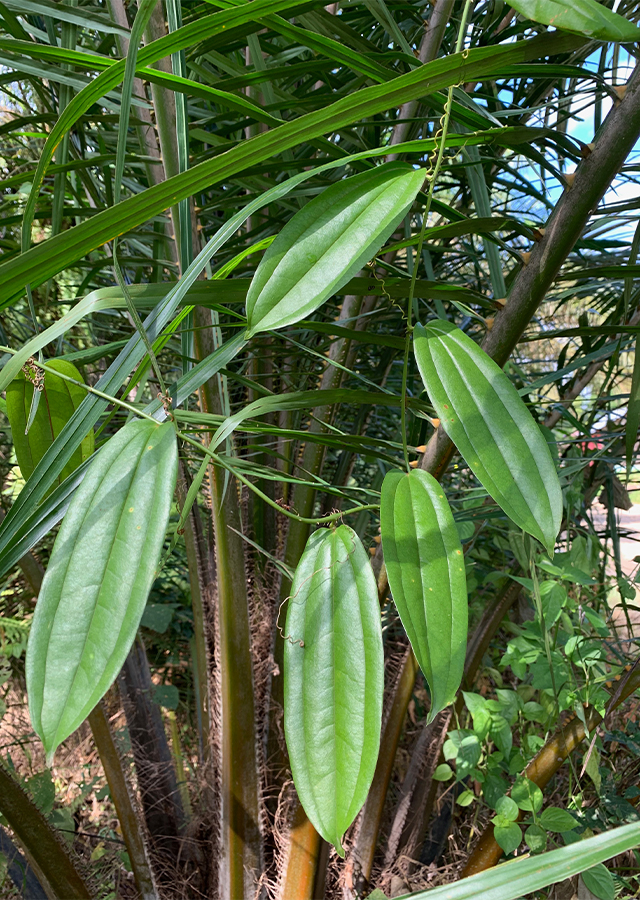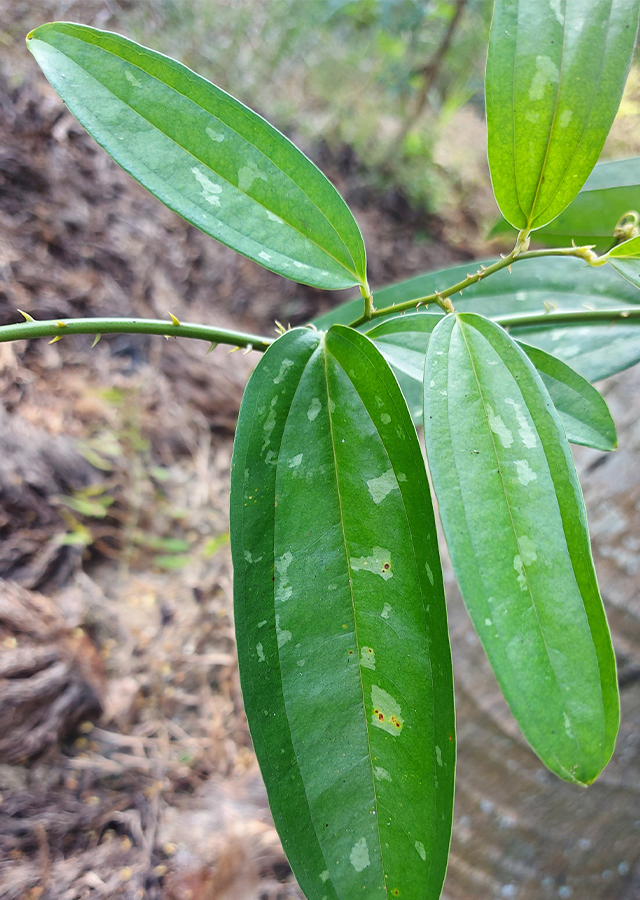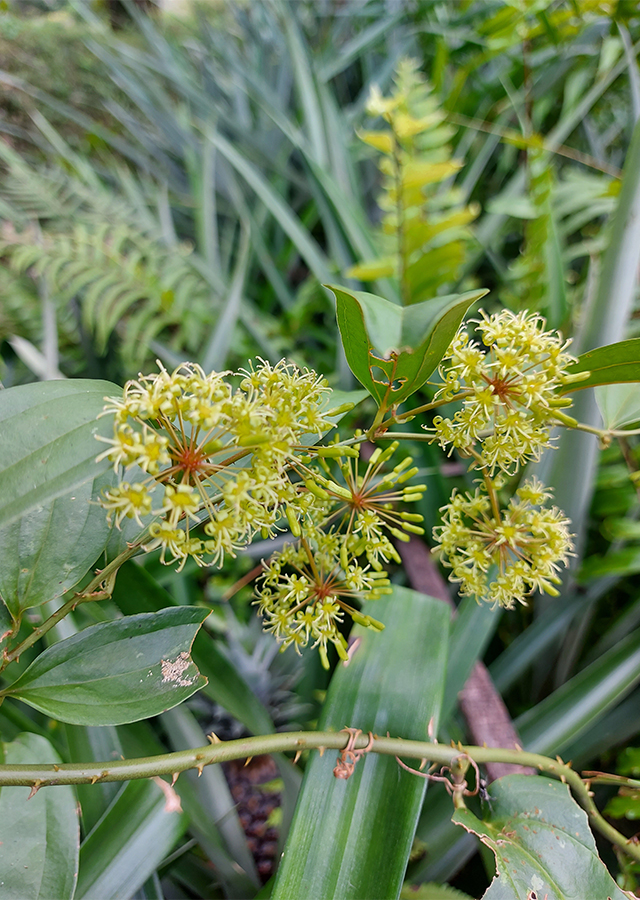Sarsaparilla
Smilax leucophylla Blume
Smilacaceae
Location in our garden
Principal



Synonym
Smilax dulcis Desf.
Smilax glycyphylla Hassk.
Smilax latifolia Blanco
Habitus
Climbers. A stout, woody, robust climber up to 20 m long armed
Part Used
Leaves
Twigs
Rhizome
Growing Requirements
Need Shade
Habitat
Forest
Overview
Sarsaparilla is native to Indonesia (Borneo, Java, Malaya, Maluku), Myanmar, New Guinea, Philippines, and Northern Australia. Young shoots, fruits and leaves are edible. Stem is usable as a substitute for rattan.
Vernacular Names
Canar bokor (Malaysia), Sarsaparillang-puti (Tagalog-Philippines), Wanabekira (Papua New Guinea).
Agroecology
S. leucophylla occurs in mixed forest and teak forest, in Java up to 1,100 m altitude. It grows in the medium altitude areas and tolerates with a pH 4-6,2.
Morphology
- Stems - has patent or recurved prickles on the stem and branches.
- Leaves - broadly ovate to ovate-oblong, 10-32 cm × 4-22 cm, coriaceous, pruinose beneath, petiole up to 4 cm long, wings of petiolar sheaths distinct, tendrils present.
- Inflorescence with 2-6 umbels.
- Fruits - about 10 mm in diameter, grey berries, black at maturity, occurring in round clusters, each fruit having a long stalk springing from the common rounded center of the cluster.
- Seeds - a singular seed.
Cultivation
Propagated by seed and stem cutting.
Chemical Constituents
Saponin, terpenoids, phenolic compounds, alkaloids, flavonoids, tannins.
Traditional Medicinal Uses
- Research showed antioxidant activity.
- It is recommended as an alternative, tonic and antiscorbutic.
- Considered blood purifier, antisyphylitic, and antirheumatic.
- The leaves are used by Aborigines for treating scurvy, coughs and chest complaints, including as a tea substitute.
Part Used
Reference Sources
- Bushcraftoz. (2011). Smilax glyciphylla (Sweet Sarsaparilla). https://bushcraftoz.com/threads/smilax-glyciphylla-sweet-sarsaparilla.1273/. 02-03-2021.
- Kew Science. (No date). Plants of The World Online: Smilax leucophylla Blume. http://www.plantsoftheworldonline.org/taxon/urn:lsid:ipni.org:names:541579-1. 02-03-2021.
- Stuart Xchange. (2013). Philippine Medicinal Plants: Sarsaparillang-putiSmilax leucophylla Blume. https://uses.plantnet-project.org/en/Smilax_leucophylla_(PROSEA). 02-03-2021.
- Teo, S.P. (2016). Pl@nt Use. Smilax leucophylla (PROSEA). https://uses.plantnet-project.org/en/Smilax_leucophylla_(PROSEA). 02-03-2021.


